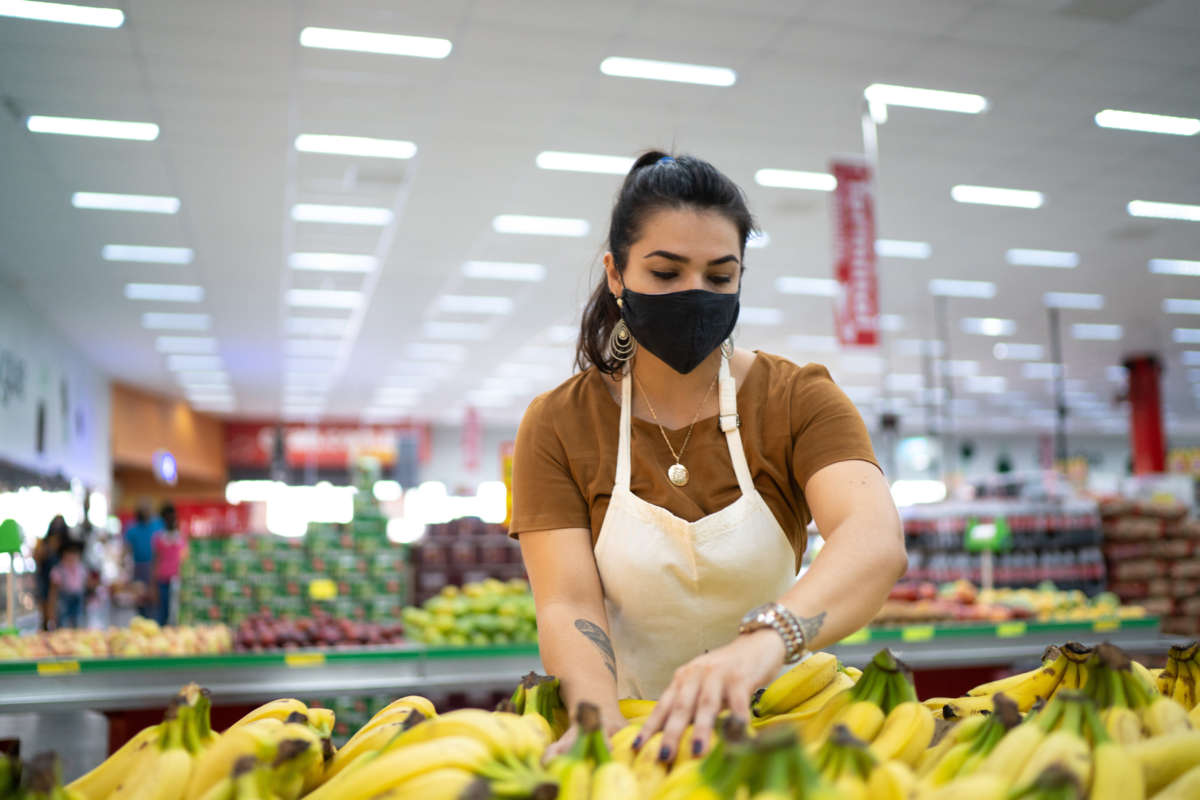Thousands of workers at King Soopers and City Market stores in Colorado went on strike Wednesday, protesting what union members say is an insufficient offer on wages and working conditions from ownership in their collective bargaining agreement.
The United Food and Commercial Workers (UFCW) Local 7 rejected a contract from Kroger, which owns the two grocery chains, on Tuesday, and the strike is slated to last three weeks. According to the union, about 8,000 workers employed at 87 stores are striking.
“Our plea remains the same: Stop these unfair labor practices, and respect us, protect us and pay us what we deserve,” said Kim Cordova, president of the union local, in a statement on Monday. “UFCW Local 7 members will remain on strike until the company agrees to cease its unfair labor practices and comes to the negotiating table in good faith.”
Kroger claimed that the latest offer was the “last, best and final” one. But the union says that it contains provisions that are unacceptable to members and fails to address issues that workers have brought up related to the pandemic.
The company hasn’t addressed concerns over wages, benefits reductions and worker safety during contract negotiations, the union says, and it “continues to demonstrate a lack of appreciation for workers who put their lives at risk in the midst of a global pandemic.” While the company offered employees extra hazard pay early in the pandemic, it took the $2 an hour “hero” pay away after just weeks, in May of 2020.
Kroger says that the latest offer includes raising starting pay to $16 an hour, but Cordova pointed out that that rate is barely higher than the minimum wage in Denver, which is home to several King Soopers locations. Meanwhile, the company is looking to hire replacement workers, or scabs, for a higher rate.
“That’s 13 cents over minimum wage, while they’re posting for replacement scab workers at $18 an hour,” Cordova told HuffPost’s Dave Jamieson. Last month, the union filed a lawsuit against the company alleging that it violated an agreement to not hire replacement workers. In response, the company has filed a lawsuit against the union, claiming that the union isn’t bargaining in good faith.
NEW: A survey of 10,000 Kroger supermarket workers reveals that 2/3 of employees are living in poverty and struggling to survive.
The grocery company’s CEO made $20 million in 2021.
Meanwhile, 40% of workers can’t afford food and 14% have been homeless in the last year. pic.twitter.com/a5g3FGjN2v
— More Perfect Union (@MorePerfectUS) January 11, 2022
The company’s offer also includes provisions to hire gig workers, restrict overtime and shorten time off for a leave of absence or injuries. Union members have rejected these proposals.
During the pandemic, as Kroger marked record profits, the workers were suffering, Cordova said. “The companies were thriving, but our workers didn’t thrive,” she said.
Know what our workers got? COVID. Attacked. Beat up. Spit on. Slapped. Overworked. And the company? They did great. They did absolutely great, sitting behind their desk doing their job by Zoom.
Kroger, the nation’s largest grocer, has faced widespread scrutiny over poor labor practices through the pandemic. While median worker pay dropped in the first year of the pandemic, Kroger CEO Rodney McMullen got an over 45 percent raise of $6.4 million, bringing his total compensation for 2020 to a whopping $20.6 million. Median worker pay, meanwhile, decreased by 8.1 percent, from about $26,000 to $24,000 annually.
Though the company has bragged about raising its average worker pay to $16, it closed stores in Seattle and California, where local governance mandated that frontline workers get bonus pandemic wages. The company made record profits in 2020 and has similarly posted an increase in profits from pre-pandemic levels in 2021. The company is valued at over $34 billion, and made nearly a billion dollars in profits in the third quarter of 2021 alone.
Press freedom is under attack
As Trump cracks down on political speech, independent media is increasingly necessary.
Truthout produces reporting you won’t see in the mainstream: journalism from the frontlines of global conflict, interviews with grassroots movement leaders, high-quality legal analysis and more.
Our work is possible thanks to reader support. Help Truthout catalyze change and social justice — make a tax-deductible monthly or one-time donation today.
